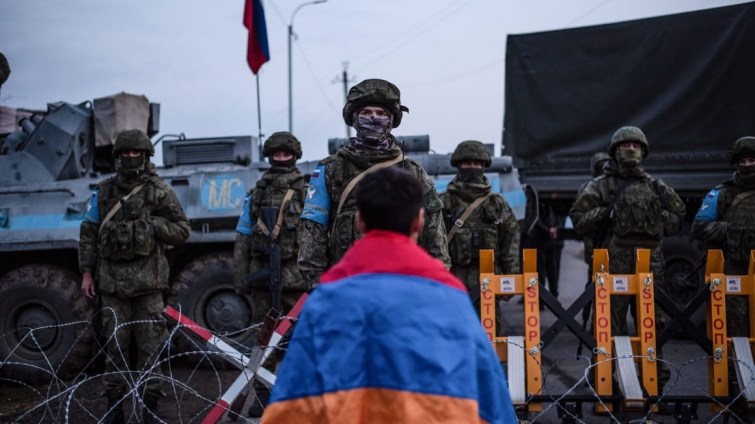Nagorno-Karabakh, a region internationally recognized as part of Azerbaijan but controlled by ethnic Armenians, has been a longstanding point of contention between Armenia and Azerbaijan. The region has witnessed several conflicts, the most recent one erupting in 2020, leading to significant casualties and displacement. The region has operated autonomously for decades, with its de facto government, but recent developments have seen a drastic shift in control and stability.
In the past few days, Nagorno-Karabakh has been thrust back into the international spotlight due to a rapid offensive by Azerbaijani forces, leading to the region's surrender. This sudden development has triggered a mass exodus of Karabakh Armenians, with approximately half of the population seeking refuge in Armenia. The humanitarian crisis is escalating as refugees pour out of the region, drawing international concern and condemnation.
Azerbaijan's President, Ilham Aliyev, has declared the restoration of Baku's sovereignty over Nagorno-Karabakh, proclaiming that the enemy has been "properly punished." The international community, particularly Western nations, has expressed shock and betrayal over Azerbaijan's use of force, leading to a reevaluation of their relationships with Azerbaijan. The EU and the US have particularly shown ire towards Azerbaijan's actions, which have sparked a humanitarian catastrophe.
Azerbaijan has long promoted itself as a reliable security partner and vital transport hub to the UK and EU, employing skilled diplomacy and lobbying. However, the recent military offensive and the ensuing crisis have led to a reconsideration of Azerbaijan's reliability and trustworthiness. The West's long efforts to resolve the conflict seem marginalized, and there is a growing realization about the true nature of Azerbaijan's influence and values.
The crisis has also exposed the geopolitical intricacies involving major powers like Russia and Turkey. The apparent inaction of the 2,000 Russian peacekeepers deployed in the region suggests possible side deals between Moscow and Baku, leaving the West sidelined. The relationships between the involved regional powers are complex, with Turkey having close ties with Azerbaijan, while Armenia traditionally maintains good relations with Russia.
The unfolding events in Nagorno-Karabakh have forced a rethinking of Western policies and alliances in the region. The German foreign minister, Annalena Baerbock, accused Baku of breaking its repeated assurances to refrain from the use of force, causing immense suffering to an already distressed population. French President Emmanuel Macron has also criticized Azerbaijani authorities for being "uninhibited."
The international community is now grappling with the moral responsibility to intervene and prevent further conflict and displacement in the region. There are discussions about imposing sanctions against Azerbaijan, and the head of the US Agency for International Development, Samantha Power, hinted at a range of options under consideration as consequences for Azerbaijan's actions.
The crisis in Nagorno-Karabakh is not just a regional concern but a global one, with significant implications for international relations, security, and humanitarian values. The international community must navigate the delicate geopolitical landscape and make a commitment to prevent further conflict and uphold peace and human rights in the region. The unfolding tragedy in Nagorno-Karabakh is a stark reminder of the fragility of peace and the enduring impact of regional conflicts on global stability and security.










Trackbacks and Pingbacks